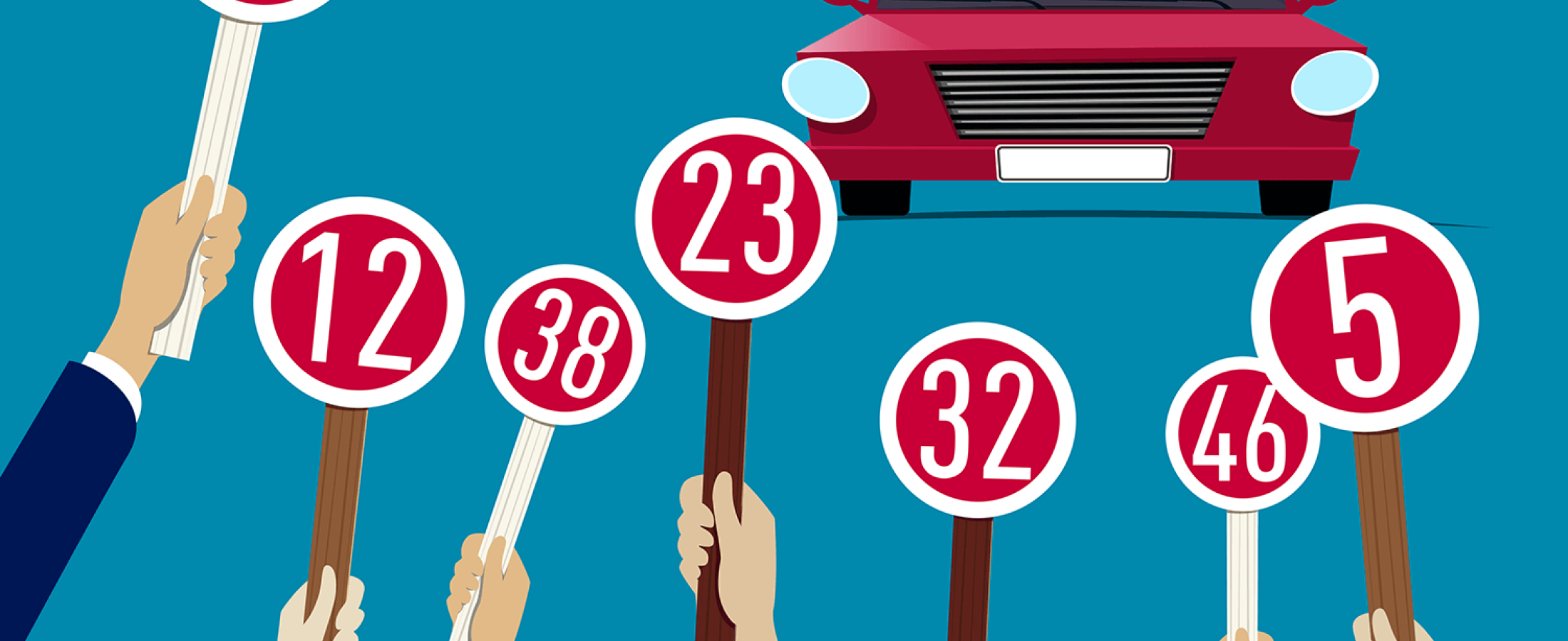
Pros and cons of buying a car at auction
If you’re looking for an exceptionally low price on your next vehicle, you may be considering a trip to your local auto auction. However, these affordable vehicles come with a wide variety of risks. Here’s a look at the benefits and drawbacks of buying a car at auction.
Rare finds at a good price
According to U.S. News and World Report contributor Cherise Threewitt, most auto auctions get their inventory from municipal impound lots, so you’ll be buying a vehicle that’s been towed, seized, or abandoned. So if you’re looking for a low price tag you’ll find plenty of options at an auto auction. From discontinued models to forgotten makes, an auto auction could help you find an affordable, unique vehicle that suits your style. That said, there are plenty of clunkers in the mix — and their problems may be the cause of their exceptionally low-price tag, so dig deep into a car’s history before placing your bid.
You could get stuck with a lemon
Auction houses usually sell cars as-is, meaning you don’t have any recourse if your purchase turns out to be unsafe, severely damaged, or in need of costly repairs. While laws vary from state to state, there is no federal law requiring the auction house to disclose these serious issues, explains Threewitt. As a result, that low-priced car could turn out to cost you thousands more than you expected to pay.
Salvage titles
Many salvage title cars wind up on the auction block. Some of these may seem like a good deal on first inspection — they may even look perfectly normal from the outside. However, salvage title cars come with plenty of risks. A car is only given a salvage title after the insurance company declares it a total loss, so it’s likely that the vehicle will need extensive repairs. Nerdwallet author Nicole Arata warns that totaled vehicles may be given some repairs before being sold — but there’s no guarantee that these repairs will make the car safe and structurally sound. Furthermore, it may be tough to find insurance for a vehicle with a salvage title. In other words, these cars may look like a good deal at auction, but may actually jeopardize both your wallet and your safety.
Purchasing under pressure
While it may take a whole day to purchase a car the traditional way, auctions move fast — often taking just minutes or hours to complete. While the speed of an auction may be appealing, it’s important to remember that the high-pressure environment of the auction house can have its own drawbacks. Threewitt warns that auctions are best suited to buyers who don’t mind making big decisions under pressure. Just keep in mind that the speed and excitement of an auction could cause you to ignore a vehicle’s major flaws or shady background. In many cases, due to the rushed environment, you won’t even get to take the car for a test drive before you make a bid.
Buying a car at auction could result in a great vehicle at a bargain price. However, there are plenty of risks involved. Always be sure to run a vehicle history report and investigate the car’s history before parting with your hard-earned cash.
The information in this article was obtained from various sources not associated with Adirondack Bank. While we believe it to be reliable and accurate, we do not warrant the accuracy or reliability of the information. Adirondack Bank is not responsible for, and does not endorse or approve, either implicitly or explicitly, the information provided or the content of any third-party sites that might be hyperlinked from this page. The information is not intended to replace manuals, instructions or information provided by a manufacturer or the advice of a qualified professional, or to affect coverage under any applicable insurance policy. These suggestions are not a complete list of every loss control measure. Adirondack Bank makes no guarantees of results from use of this information.
Source: IMakeNews, Inc.

